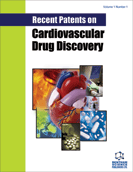Abstract
Atherosclerosis is the one of the commonest causes of morbidity and mortality in the world. This review examines some of the recent patents taken out on biomarkers of cardiovascular risk, novel dietary supplements and new methods to treat cardiovascular disease. Though current approaches based on risk stratification into primary and secondary prevention and calculation of risk using simple risk factors are well established, there remains a need to develop more specific biomarkers of risk integrating many of the aspects of the atherosclerotic process including oxidized lipoproteins or inflammation-modified proteins. Diet is established as the mainstay of long-term cardiovascular management with great potential benefits but in the modern environment compliance tend to be low. Many approaches investigate the role of dietary supplementation with omega-3 fatty acids and other agents or the use of nutriceutical compounds capable of competing with cholesterol for absorption. A statin-based strategy is the mainstay of cardiovascular lipid -related risk management. However statins are not universally tolerable and are limited in the effects they have on some fractions of the risk profile especially low high density lipoprotein (HDL)-cholesterol. Many new drugs are in development to raise HDL or mimic its effects. These include novel agents to target nuclear factor receptors already familiar from previous successful drugs such as bile acid sequestrants, fibrates and thiazolidinediones as well as novel approaches investigating key regulatory enzymes such as stearoyl-CoA desaturase. Similarly as inflammation is a central part of atherosclerosis other novel approaches are targeting the multiplicity of inflammation-associated pathways including 5-lipoxygenase and purinergic receptors.
Keywords: Atherosclerosis, nutrition, cholesterol, inflammation, novel therapy, drug, patent
 5
5


